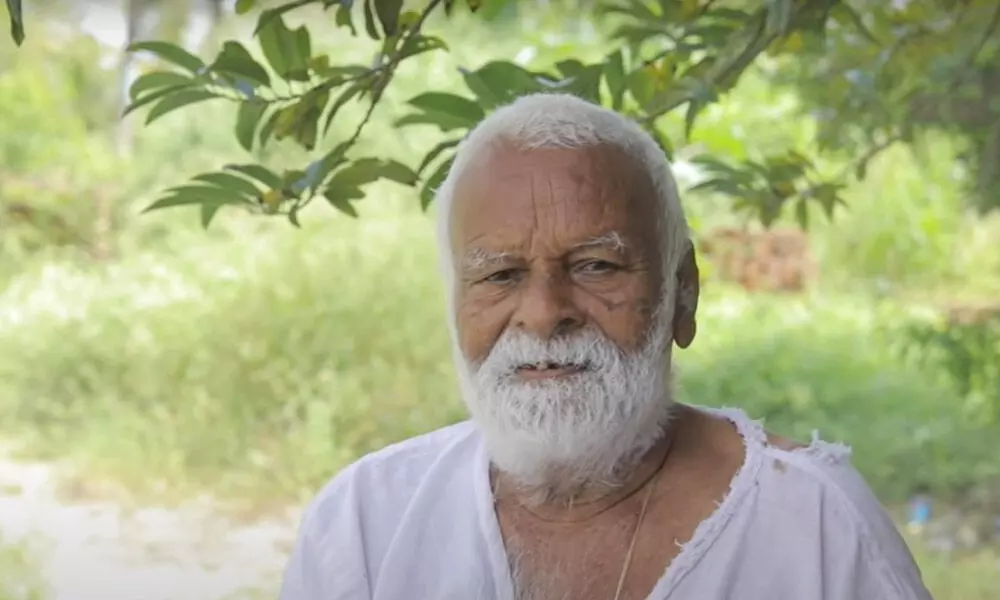Live
- NRI deposits soar $11.9 bn in 7 mths
- Positive outlook on FDI inflows in 2025
- EY forecasts 6.5% GDP growth for FY25
- Chicco opens new store
- DPIIT-recognised startups over 1.57 lakh
- Gunfight between armed groups in Imphal village
- Road blockade in Pak: 100 kids die awaiting aid
- Will develop constituency in every aspect: Bojju Patel
- Vajpayee was true nationalist: Harish Babu
- Govt will soon sanction loan to Christians: MLA Vedma Bojju Patel
Just In

GH Kashinath
G.H. Kashinath, the protagonist of 'The Organic Seed', a documentary, epitomises an innovative and hard-working farmer. The 90-minute film by Adityaa Sadashiv, puts the spotlight on this agriculturist from Giriyapura, a village in Chikmagaluru district.
Bengaluru: G.H. Kashinath, the protagonist of 'The Organic Seed', a documentary, epitomises an innovative and hard-working farmer. The 90-minute film by Adityaa Sadashiv, puts the spotlight on this agriculturist from Giriyapura, a village in Chikmagaluru district.
Kashinath, 85, has always been a person who thinks ahead of his time.
Even though he was a bright student, he never planned to pursue higher studies but, he preferred living his life and learning through experiences.
The idea to develop agriculture germinated in his mind after he travelled across Karnataka and studied about the problems that the farmers of this region were going through.
"Kashinath has spent almost 60 years developing the socio-economic conditions of the farmers.
Organic seeds are inadequate unlike the other seeds in the agricultural sector, but he has been using organic farming techniques since ages," Adithyaa tells The Hans India. As Kashinath opposed chemical fertilisers, he would drive to the neighbourhood to obtain organic manure comprising dry leaves, animal excreta and dead animals.
The farmers in the village were growing traditional crops like ragi and maize that required high investment but gave low returns. Kashinath introduced eight varieties of Indof ragi crop and prodded farmers to grow chilli, different varieties of corn and sunflower. He also persuaded the farmers to plant onion seeds rather than onion sprouts to get a bountiful harvest, revolutionary idea indeed.
Another significant contribution of Kashinath was introduction of Amruth Mahal cows in the village. He also saw extravagant weddings as wasteful expenditure and organised the first ever community wedding in the village. All pairs including Kashinath and his bride, wore inexpensive clothes. The community believes that people followed Kashinath because he walked the talk.
Simplicity, honesty and determination set him apart from the rest.
The documentary roughly took a year to get completed. "I got to know about Kashinath through a family friend and started studying about his contributions towards organic farming before filming this documentary," he adds.
There might be various techniques brought up by the government to help the farmers but this has led to an excessive dependency. Furthermore, according to the filmmaker, Kashinath always suggests that people be aware of the environment in which they live. It could be the type of the soil, crops that can be grown in this type of soil and the weather conditions in and around the region. This can help the farmers in understanding their surroundings and obtaining a solution rather than being dependent on technology.

© 2024 Hyderabad Media House Limited/The Hans India. All rights reserved. Powered by hocalwire.com







